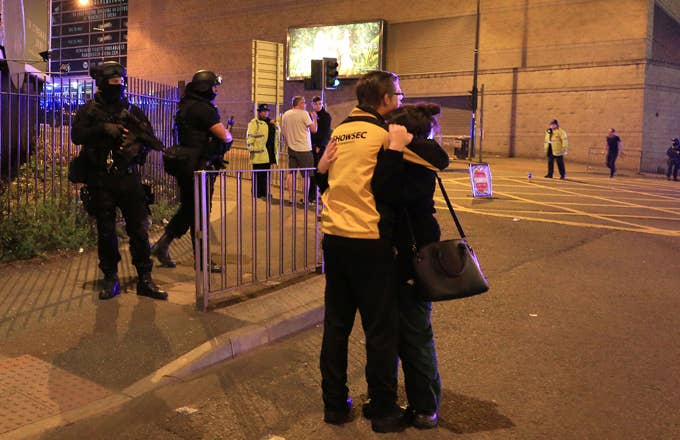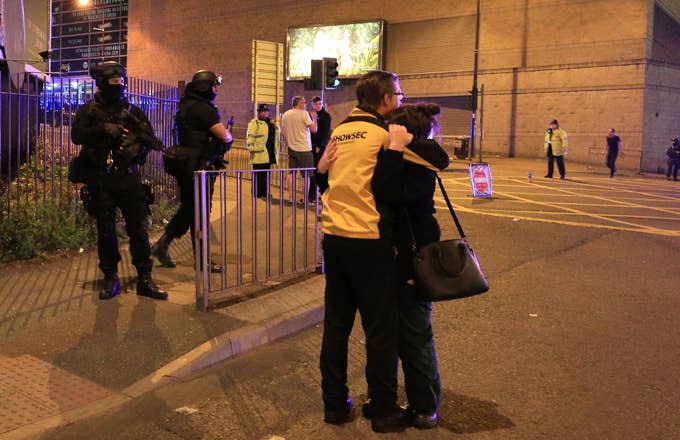
Since 1998, when he arrested a bouncer, Robert Smith has been working with employees at bars, nightclubs, casinos, and music venues across the country to optimize safety in crowded, often alcohol-fueled spaces. Nearly two decades ago, he was a member of the San Diego Police Department, and this sort of training became a "hobby" for Smith—and also a means to plan for life and work after he left the police. When a horrific tragedy like Monday night's bombing at the Ariana Grande concert at Manchester Arena occurs, Smith, now the CEO and president of Nightclub Security Consultants, watches and wonders about what could have been done to prevent the kind of collateral harm that comes with a shooting or explosion.
I know it's scary, but you have a better chance of getting out safe if you make a decision when you're calm and collected.
"We just got done in Los Angeles training three different clubs over the last few days, and an hour-and-a-half of our training is just on emergency procedures," Smith told Complex over the phone. This sort of training has not been the norm in the industry, according to Smith—and it's creating problems. For instance, the Station fire in West Warwick, Rhode Island, at a Great White show. Thirteen years ago, Smith said, "a hundred people died because of the way the club was laid out, and because the staff had no training to get people out safely."
But in the 21st century, active shooter scenarios and bombs occupy his attention, and his method of preparation is simple. "You and I talking about this, right now, it's a way to mentally prepare yourself," he said, "You've thought about it, you've talked to your colleagues about it, you're talking to me about it. Now that seed is planted in your head. If you're in a theater and haven't thought about [what to do], you're in a dangerous position. My training to guards is, talk to your guests. Let them know where the exits are. Let them sit for 10 seconds before the show starts and think, What would I do if—? Because one of the biggest problems is panic."
Smith described hearing a transformer blow while inside a building. "I'll touch my friend and say, 'Hang on. Let's just sit here and not run into something.' Like what happened in Bali back in 2002, where there was a double bombing: a small backpack bomb, and a much bigger larger car bomb. And the car bomb killed most people because they were running out the exit in a panic. If you hear a large boom, stop and assess what information you have. Don't become part of the scared stampeding sheep—you may be running into a more dangerous situation. I know it's scary, but you have a better chance of getting out safe if you make a decision when you're calm and collected."
Even in the calm of a quiet office and a measured phone conversation, it's hard to imagine not letting panic rule your response. But that's the discipline Smith teaches, and like any kind of discipline it must become muscle memory through mental repetition. Hence his emphasis on talking about these things and asking yourself how you would react when arriving to a venue for the first time.
For a shooting in a venue, his advice again hinged on staying collected. "If you hear gunshots, your first reaction will be to run," he said. "But maybe the best reaction is to sit, hide, and assess, and then run out while the shooter is heading past you. We know of too many people who hid, sat there, and became victims."
For Smith, fear and thoughtless action is the scary obstacle to overcome. When asked what he would tell someone who is ready to give up on live music and crowded events after something like Monday's bombing, he said, "I feel sorry for the person who says they won't go to shows anymore because of fear. We're a free society. You have to beat that fear."

